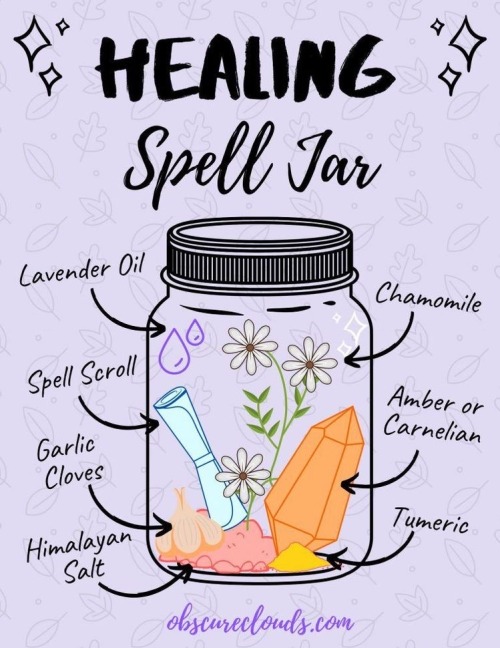Alittleanxiousbadger - A Little Anxious Badger

More Posts from Alittleanxiousbadger and Others


Witchy Self Care 🧿🔮🌿
[via Pintrest & obscureclouds.com]
Getting To Know Plant Allies

photo source
Use It!
One of my teachers was very insistent that before I was allowed to study a plant, I had to get to know it first. Head knowledge is one thing, but when you are working as a herbalist you have to have more than that.
Before using any herb, even for these exercises it is important to look up contraindications for the herb. Herbs are medicinal, even in small doses. Personally I like to use this book. And remember to always tell your doctor if you are taking any herbs!
Based on the type of herb, make a decoction or infusion. Fragile herbs, usually dried leaves or flowers, are better suited to an infusion (let steep in nearly boiling water for 20 minutes). Hardier herbs such as roots can be simmered in the water for 20 minutes (decoction).
Sip slowly, taking notice of how the tea feels in your mouth. Does it trigger a salivary response? How does it taste? Anything your experience is worth taking note of. I’ve never been sad I took too many notes!
Take a bath with it. If a full bath isn’t possible, do a foot or hand bath. I was taught to start with water as close to room temp as possible. This can be a good way to determine if the herb has warming or cooling properties.
Again, make notes! Lots of them.
Get creative with how you experiment. Cook with them, use them for facial steams. Any way that you’re called to, and remember, take notes!
Study It - Materia Medica
It’s time to make your own herbal! We’re going to take our observations and start a Materia Medica. This is the term herbalists have been using since the 1st century AD, thanks to the Ancient Greek physician Pedanius Dioscorides. Modern science now often uses the term pharmacology but I greatly prefer the Materia Medica.
Some witches will combine this with a Materia Magica which goes into the magical correspondences for the herbs. But this post won’t be covering that.
How each herbalist organizes the Materia Medica is going to vary, but it should hit a few key points. And, of great importance, is to track your sources! Any information that you include in your MM needs to have a citation so that you can track your info.
Latin Name
My Materia Medicas always start with the Latin name for the herb. Herbs have many, many different names. Both through history and throughout the world. The best way to ensure that you’re using the correct plant is to use the latin name. But then, after that, I make not of common names and historical names.
History/Lore
If a herb has an interesting history, or appears in folk lore I make note of that next. It can be interesting and is helpful for knowing the herb. There’s a lot of knowledge to be gleaned from old stories!
Description
If you’re inclined for either wildcrafting or foraging, a section on the cultivation and appearance of the plant.
Chemicals
Now, we get into the medicine of it. Herbs work because they contain chemical compounds. A lot (all?) of modern medicine is derived from the manufacturing of these chemicals.
Make a list of the chemicals that are found in the herb. Making note, where you can, of what these chemicals actually DO. Over time you’ll want to get to know which ones are the active ingredients and how the work. Yup, it’s science!
Herbal Actions
Actions come next. Herbal actions are a whole language to learn. But as you are putting together the Materia Medicas you’ll start to get the hang of things! An action describes the way a herb works on the body.
It can seem a bit overwhelming, so here is an example.
Bitter is an herbal action, and it is aptly named. Herbs with this action typically taste… bitter! The action that they have on the body usually starts in the mouth where it stimulates saliva production as the first step of aiding in the digestive process. (they do a lot more but we’re keeping it simple for the example).
Examples of bitters are: arugula (also called rocket), dandelion greens, and black coffee.
Here’s a very simple way to experiment yourself! Take some time to sample one of the above mentioned bitters and see how your body reacts.
Christopher Hobbs is an herbalist I respect a lot. He has a handout that he uses in his classes which lists herbal actions, indications (we’ll get into that next), and lists example herbs.
http://www.christopherhobbs.com/webdocs/class-handouts/keville-hobbs-2016/Herbal-Actions.pdf
I highly suggest printing this sheet out and keeping it handy, reading it over often. Eventually it’ll become more intuitive, but it takes time and practice.
Indications
Indications are where we want to use the herb. IE: where is the herbal action of the herb indicated? This is going to be a list of conditions that the herb in question is good for treating.
For example, Corn Silk (zea mays) is an antiseptic, demulcent and a diuretic. Because of this, it’s indicated for use with a urinary tract infection. (it’s indicated for other things too, but I’m trying to keep things fairly basic!)
The demulcent soothes the irritated skin, the diuretic helps to increase urine output, and the antiseptic of course helps to prevent the growth of harmful organisms.
Medicine
The last section of my Materia Medica deals with dosing and contraindications.
I like to include dosing for both teas and tinctures as they are my personal favorite ways for treating people.
Contraindications means anything that counteracts with the herb. St John’s Wort is a popular one for this, as it has many. It is a highly reactive herb and can interact negatively with many drugs!
It is very important to know how the herb interacts. People think that because herbs are natural/plants that somehow this excludes them from the realm of medicine. But the very reason that herbs are effective is because they ARE medicine!
When I am working with a client, I do my best to take a detailed history, even things they don’t think is important. But I also inform them of every herb I am giving them and encourage them to do their own research. And it’s important to be aware of your body when you are taking herbs. From the practitioner to the person taking the herb, everyone needs to do their own due diligence.
If you found this post useful, or have any comments/thoughts/etc I would love to hear it. If there is interest I can do posts on salves, tinctures, etc. And perhaps examples of my own materia medicas.
make your next semester better
so your last semester wasn’t as good as you would have liked it to be.
some classes were good, and some were not. honestly, applying to universities and scholarships and just the stress of trying to get in has been getting to me. it happens to everyone at some point, whether you’re in currently in, pre, or post secondary-school.
here’s how we’re going to make the next semester better!
1. have a good first day.
a big mistake is to be hard on yourself on your first day. being disciplined is good, but when you push to hard you will break sooner. wake up as early as you need to be ready, but don’t push yourself to be up at some crazy hour of the morning. set our your stuff the night before so you can have an easy morning. treat yourself to a healthy, delicious breakfast, it’s really important to eat something first thing in the morning to get your brain working. try not to stress yourself out too much, especially if your last semester kinda sucked, and it’s VERY important not to let yourself automatically associate school with negative emotions like fear and stress, because that will paralyze you down the line when things get more difficult closer to exam season, etc.
2. don’t be afraid to drop
when going to all your new classes, really seriously evaluate your ability to succeed in a class with that time slot/professor/etc. and whether or not the class will really benefit you in the future. last semester i took a kinesology class, which has some relevance to what i want to do, but i didn’t need it. after realizing how much studying i was going to need to do, i dropped it so i could focus more on my other classes that i needed to get good grades in. or try and take it again next semester if it fits!
3. limit other activities at first
your first couple weeks of the new semester, cut back on other activities. do what you enjoy and what will ultimately de-stress you, but if you can, cut back on club meetings, or sports practices this will be best until you get back into a good flow. this will help you get used to the pace of all your classes without being stressed out by other things, it helps you reorganize your priorities and put school first
4. try out something new organizationally
typically, i am a very organized person, and being so i like to reorganize and try out different methods with my planners, folders, notebooks, etc. this helps me to keep me on my feet, remembering that i need to make sure i keep track of assignments, test dates, and anything else. try to find a strategy that works for you, and make it work!
so there are my tips, let’s start get this new semester off to a great start!
Magick of the Moon Phases

New Moon
A time for:
New ventures
New beginnings
Love and romance
Health
Job hunting
Fresh starts
New projects
Personal Growth
Waxing Moon
A time for:
Constructive Magick
Love
Wealth
Success
Courage
Friendship
Luck
Health/Healing
Growth
Protection
Prosperity
Attraction
Any type of positive magick
Financial Growth
Full Moon
A time for:
All magick (Enhances all types of magick)
Love
Knowledge
Legal undertakings
Money
Dreams
Protection
Fixing any situations that need it
Divination
Cleansing and charging crystals and tools
Psychic awarness
Family and Friends
Waning Moon
A time for:
Banishing magick
Bindings
Removing addictions
Clearing negativity from your life
Getting rid of illnesses and sicknesses
Harvests
Exorcism
Cleansing
Getting rid of bad habits
Dark Moon - Black Moon
Some practitioners believe this is a time to take a break from casting, others believe this is a powerful time to cast spells.
A time for:
Removal of bad habits
Binding spells
Bringing things to justice
Banishing
Dreaming/Prophecies
Crescent Moon
A time for:
Intention
Hopes
Wishes
First Quarter
A time for:
Challenges
Decisions
Taking action
Gibbous Moon
A time for:
Adjustments
Refinements
May the Moon Light your path!
Moonlight Academy
always remember that love will always come back to u. in a different form, different person, different hobby, different touch. but in any way, love will always come back.

IT poster in Stranger things style
https://youtu.be/EKgKienyg5Y








subtitles from Science Gossip, 1900
reblog for a perfect second semester
the universe knows you will learn from your first semester mistakes
second semester is when we all get 4.0s
we got this.
reblog to help a friend
❤️ You Have Recieved Good Vibes & Success!! ❤️
By reading this post, you have recieved good vibes, positivity and success in your magick! No exceptions!
✨feel free to share the vibes!!✨
it’s dangerous to go alone. take this

-
 poppytres reblogged this · 2 weeks ago
poppytres reblogged this · 2 weeks ago -
 wormint liked this · 2 weeks ago
wormint liked this · 2 weeks ago -
 folkive liked this · 2 weeks ago
folkive liked this · 2 weeks ago -
 yawnwhatyadoing liked this · 2 weeks ago
yawnwhatyadoing liked this · 2 weeks ago -
 babydeersblog liked this · 2 weeks ago
babydeersblog liked this · 2 weeks ago -
 blackbeltkitten2 liked this · 2 weeks ago
blackbeltkitten2 liked this · 2 weeks ago -
 lock-my-feelings-in-a-jar liked this · 2 weeks ago
lock-my-feelings-in-a-jar liked this · 2 weeks ago -
 born-to-lose reblogged this · 2 weeks ago
born-to-lose reblogged this · 2 weeks ago -
 anothertorturedpoet13 reblogged this · 3 weeks ago
anothertorturedpoet13 reblogged this · 3 weeks ago -
 sevenseaways liked this · 3 weeks ago
sevenseaways liked this · 3 weeks ago -
 futuristicallycrazyrobot liked this · 3 weeks ago
futuristicallycrazyrobot liked this · 3 weeks ago -
 renderthenight liked this · 3 weeks ago
renderthenight liked this · 3 weeks ago -
 clown-egg-and-other-things reblogged this · 3 weeks ago
clown-egg-and-other-things reblogged this · 3 weeks ago -
 corvismorelike00corvis reblogged this · 3 weeks ago
corvismorelike00corvis reblogged this · 3 weeks ago -
 corvismorelike00corvis liked this · 3 weeks ago
corvismorelike00corvis liked this · 3 weeks ago -
 sweetdoll-bees liked this · 3 weeks ago
sweetdoll-bees liked this · 3 weeks ago -
 yvesofthemoon liked this · 3 weeks ago
yvesofthemoon liked this · 3 weeks ago -
 rhymes-with-smurf liked this · 3 weeks ago
rhymes-with-smurf liked this · 3 weeks ago -
 crab-party liked this · 3 weeks ago
crab-party liked this · 3 weeks ago -
 vautour-coccinelle-serpent reblogged this · 3 weeks ago
vautour-coccinelle-serpent reblogged this · 3 weeks ago -
 lostsomewhereinthegarden reblogged this · 3 weeks ago
lostsomewhereinthegarden reblogged this · 3 weeks ago -
 lostsomewhereinthegarden liked this · 3 weeks ago
lostsomewhereinthegarden liked this · 3 weeks ago -
 lovely-------lady reblogged this · 4 weeks ago
lovely-------lady reblogged this · 4 weeks ago -
 lovely-------lady liked this · 4 weeks ago
lovely-------lady liked this · 4 weeks ago -
 whitetiger94things reblogged this · 4 weeks ago
whitetiger94things reblogged this · 4 weeks ago -
 plaintain-waste reblogged this · 4 weeks ago
plaintain-waste reblogged this · 4 weeks ago -
 shablonkamightcry liked this · 4 weeks ago
shablonkamightcry liked this · 4 weeks ago -
 heyihateusernames liked this · 4 weeks ago
heyihateusernames liked this · 4 weeks ago -
 strwbkrry liked this · 4 weeks ago
strwbkrry liked this · 4 weeks ago -
 mangyraccooon liked this · 4 weeks ago
mangyraccooon liked this · 4 weeks ago -
 mae-flowers101 reblogged this · 4 weeks ago
mae-flowers101 reblogged this · 4 weeks ago -
 mae-flowers101 liked this · 4 weeks ago
mae-flowers101 liked this · 4 weeks ago -
 blackrose879 reblogged this · 4 weeks ago
blackrose879 reblogged this · 4 weeks ago -
 blackrose879 liked this · 4 weeks ago
blackrose879 liked this · 4 weeks ago -
 warnedofthesilence liked this · 4 weeks ago
warnedofthesilence liked this · 4 weeks ago -
 ciallero reblogged this · 4 weeks ago
ciallero reblogged this · 4 weeks ago -
 badbitchesarentafraidofchange liked this · 4 weeks ago
badbitchesarentafraidofchange liked this · 4 weeks ago -
 dorykinny liked this · 4 weeks ago
dorykinny liked this · 4 weeks ago -
 dontne3d1 liked this · 1 month ago
dontne3d1 liked this · 1 month ago -
 dontne3d1 reblogged this · 1 month ago
dontne3d1 reblogged this · 1 month ago -
 zeldafreakinrox-blog reblogged this · 1 month ago
zeldafreakinrox-blog reblogged this · 1 month ago -
 haunted-mouse-house liked this · 1 month ago
haunted-mouse-house liked this · 1 month ago -
 summertimestargazing liked this · 1 month ago
summertimestargazing liked this · 1 month ago -
 boogersboobers reblogged this · 1 month ago
boogersboobers reblogged this · 1 month ago -
 ermidunno liked this · 1 month ago
ermidunno liked this · 1 month ago -
 ermidunno reblogged this · 1 month ago
ermidunno reblogged this · 1 month ago -
 averagemoderncitizen liked this · 1 month ago
averagemoderncitizen liked this · 1 month ago -
 occultlesbean liked this · 1 month ago
occultlesbean liked this · 1 month ago

170 posts